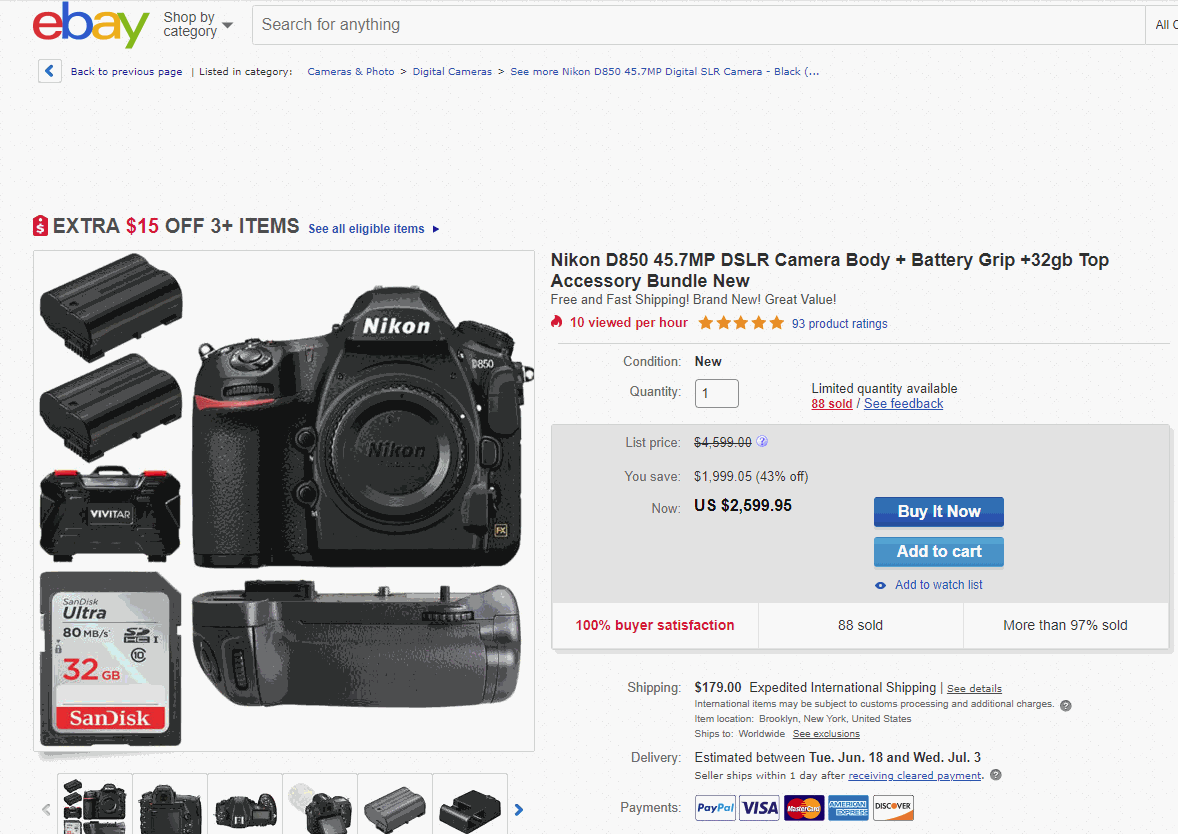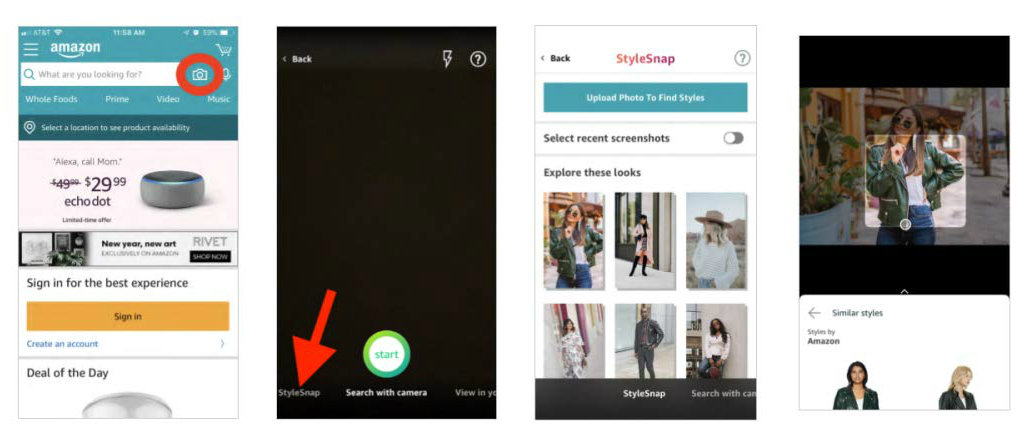Artificial Intelligence (also known as AI) doesn’t only belong to tech giants and startups. AI is also transforming the ecommerce industry by changing the way brands build relationships and interact with customers.
Ecommerce stores are taking part in the AI arms race, more so because of the potential to increase sales and conversions.
In fact, the annual spend on artificial intelligence is projected to grow to a whopping $7 billion by 2022. And it is expected that the retail industry will overtake the banking industry with regards to cognitive/AI spending.
With the help of customer data, using AI for ecommerce helps business owners learn what customers like and helps them guide shoppers to make better purchasing decisions based on their preferences.
In this roundup, we share how three retail giants are using AI for ecommerce to increase sales and engagement with their customers.
Hopefully, you can implement some of their ideas.
1. AI translation boosted eBay sales more than 10 percent
If you’re using eBay to sell your products internationally, you might want to consider using its AI-powered automatic translation feature.
It seems that the automatic translation option that eBay offers is, in fact, increasing the conversion rates from overseas shoppers.
According to a recent study by MIT and Washington University in St. Louis, after implementing AI translations to Spanish, the sales from the US to Latin American countries increased by 10.9%.
Also, once they compiled data from their Russian, Italian, and French sites, they found similar results. According to the research team,
These comparisons suggest that the trade hindering effect of language barriers is of first-order importance. Improved machine translation has made the eBay world significantly more connected.

It might not be a world-class translation, but it surely bridges the language gap
For you, this means that more people can access your product listings on eBay in their native language, which will increase your conversions.
Even if you’re not selling on eBay, this data still provides validation for the importance of localizing your store.
Consider implementing different language versions for your online store. Shopify has also recently released a beta version of its multilingual support for merchants.
2. Amazon launches an AI fashion assistant
At re:Mars 2019, Amazon introduced a new in-app tool called StyleSnap. If you’re currently using Alexa on your mobile phone, follow the instructions below and try it out yourself!
This new AI personal assistant will enable shoppers to take a photo or upload a screenshot of any clothing item onto the system. Through image recognition, the app will show you other products on Amazon that will match it.
Using StyleSnap is simple. Shoppers have to click on the camera in the corner of the Alexa app and snap a picture of the item they’re looking for. Then, Amazon will send a list of recommendations and similar items taking price ranges and user recommendations into account.

Looks pretty simple to us, but try it and tell us how it was!
The Consumer Worldwide CEO, Jeff Wilke, said during StyleSnap’s launch, “The simplicity of the customer experience belies the complexity of the technology behind it.”
While it’s true that other companies like Pinterest already released similar apps, like Lens, the fact that Amazon is researching and developing new tools that use image recognition is excellent news because it marks the beginning of a new kind of retail.
If you’re selling on Amazon, StyleSnap offers you a new way to increase your reach. It can showcase your products to a broader audience that’s actively looking for something you’re selling.
This is particularly important with ecommerce stores that sell items from known brands that already have a following.
3. Walmart’s Jetblack drives sales for the retail superstore
Jetblack is a members-only service powered by a combination of artificial intelligence and human expertise to be a personal shopper.
Born as an independent startup, launched from within Walmart’s internal incubator, the app handles shops from anywhere.
Walmart’s Jetblack home page
According to Walmart, almost two-thirds of Jetblack’s customers purchase a product using the app at least once a week.
The company also states that shoppers who make a purchase using Jetblack have reduced return rates and usually spend more than those who go to the store ($124.84 per shopping trip vs. $50).
However, while it’s an interesting idea, the service is still in beta and it’s only available to shoppers in parts of New York City. But scaling Jetblack and implementing AI solutions could have a positive impact on Walmart’s overall shopping experience.
For retailers, implementing AI-powered shopping services like Jetblack could open the door for similar solutions that streamline the shopping experience.
Last thoughts…
While it’s clear that implementing AI can help online businesses, ecommerce stores can’t ever lose the human touch. Even Walmart’s Jetblack still incorporates the human touch with their AI solution.
In the age of AI, personalization is the best way of driving sales and delighting shoppers. The more tailored-made the shopping experience looks, the more appealing it is to the shoppers.
This is why, as an ecommerce store owner, you need to stay up to date with what’s happening in the ecommerce world, even if you don’t sell on eBay or on Amazon.









